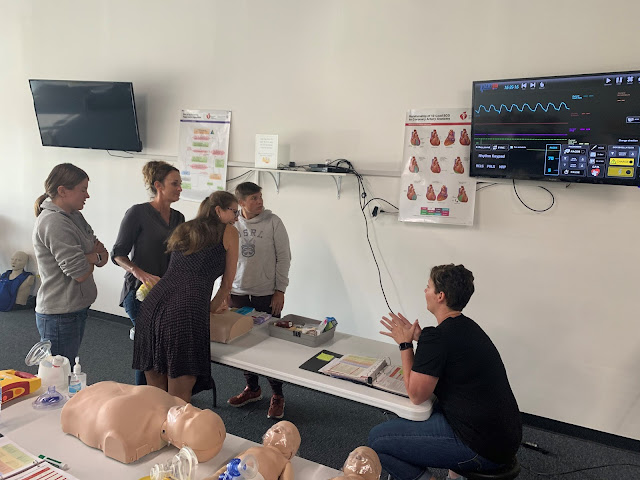AHA CPR Certification for Teachers and Coaches in St Louis
Educators and coaches have a duty to respond quickly and effectively when health emergencies happen at school. Being AHA CPR certified ensures you have the skills to take lifesaving action if a student or colleague stops breathing, chokes, or experiences sudden cardiac arrest. CPR St Louis provides American Heart Association CPR and first aid training tailored for teachers, coaches, and all school staff members.
AHA CPR for Educators and Coaches
Knowing how to perform CPR and use an AED are essential skills for teachers, coaches, administrators, and other personnel. The AHA's CPR courses for schools cover:
Safely performing CPR on adults, children, and infants
Using an automated external defibrillator (AED)
Relieving choking
Identifying signs of heart attack and stroke
Controlling bleeding
Responding to allergic reactions
Administering approved medications
Courses are designed specifically for educators and school staff members. You'll gain the confidence to manage health emergencies with your students until EMS arrives.
Why AHA Certification Matters
The American Heart Association sets universal CPR guidelines based on the latest scientific research. AHA-certified instructors have access to the most up-to-date educational materials and instruction techniques. When you learn CPR skills from an AHA-authorized instructor, you can trust that you are getting lifesaving training rooted in the latest medical evidence.
School districts frequently require or recommend AHA CPR certification for staff. Having an AHA CPR card verifies that medical experts trained you to provide high-quality CPR and first aid. It shows your readiness to respond quickly and effectively when health emergencies happen on school grounds.
Dealing with Emergencies in Educational Settings
Teachers and coaches often act as first responders for students. Being prepared with CPR and first aid training tailored for school staff helps ensure the best outcome in an emergency until EMS teams can take over care.
Sudden Cardiac Arrest
Sudden cardiac arrest is the leading cause of death for student-athletes and adults under 35. Immediate CPR and AED use can more than double the survival odds. All school staff members should know how to perform CPR and use available AEDs.
Choking
Children often put items in their mouths that can cause airway blockages. Educators and coaches should be trained on protocols for relieving choking in conscious and unconscious victims.
Allergic Reactions
Severe allergic reactions that restrict breathing require quick action including medication administration and CPR if breathing stops. Training helps staff recognize signs of reactions and respond appropriately.
Bleeding Emergencies
School staff may encounter injuries on the playground, in labs, during athletics, and in other scenarios. Controlling bleeding with direct pressure, wound packing, and tourniquets can be lifesaving.
Heart Attack and Stroke
Though less common in students, heart attacks and strokes can occur in school staff and visitors. Recognizing warning signs quickly improves outcomes.
Customized AHA Training for Schools
CPR St Louis offers specialized AHA courses to prepare all school personnel to manage health crises. Courses can be customized to:
Meet state and district training requirements
Train staff on school emergency response protocols
Include AED operation and coordination with school AED programs
Cover first aid situations unique to school settings
We provide flexible options for instructor-led training at your school or our training center and online/self-directed courses. Group discounts make it affordable to get your entire staff certified.
Invest in Lifesaving AHA CPR Training
Being AHA CPR and first aid certified empowers teachers, coaches, and school staff to take fast, effective action during health emergencies. Contact CPR St Louis today to learn more about our AHA training courses for educational professionals. We offer classes on weeknights and weekends for your convenience. Help ensure the safety of your students by getting certified in the skills that save lives.



Comments
Post a Comment